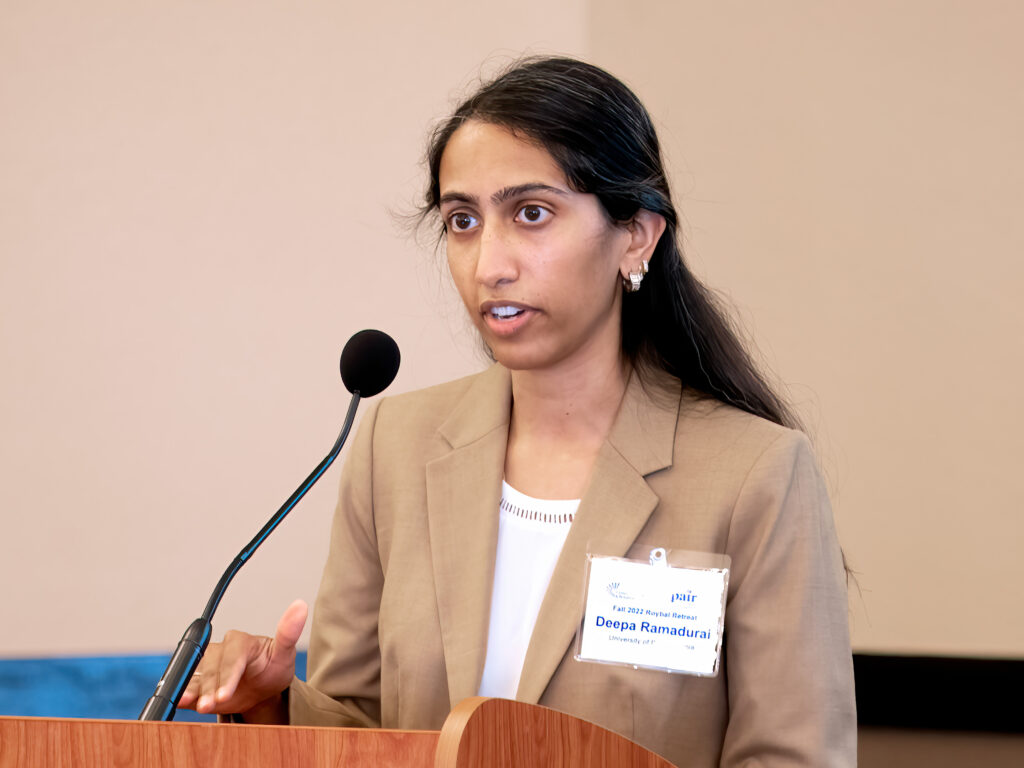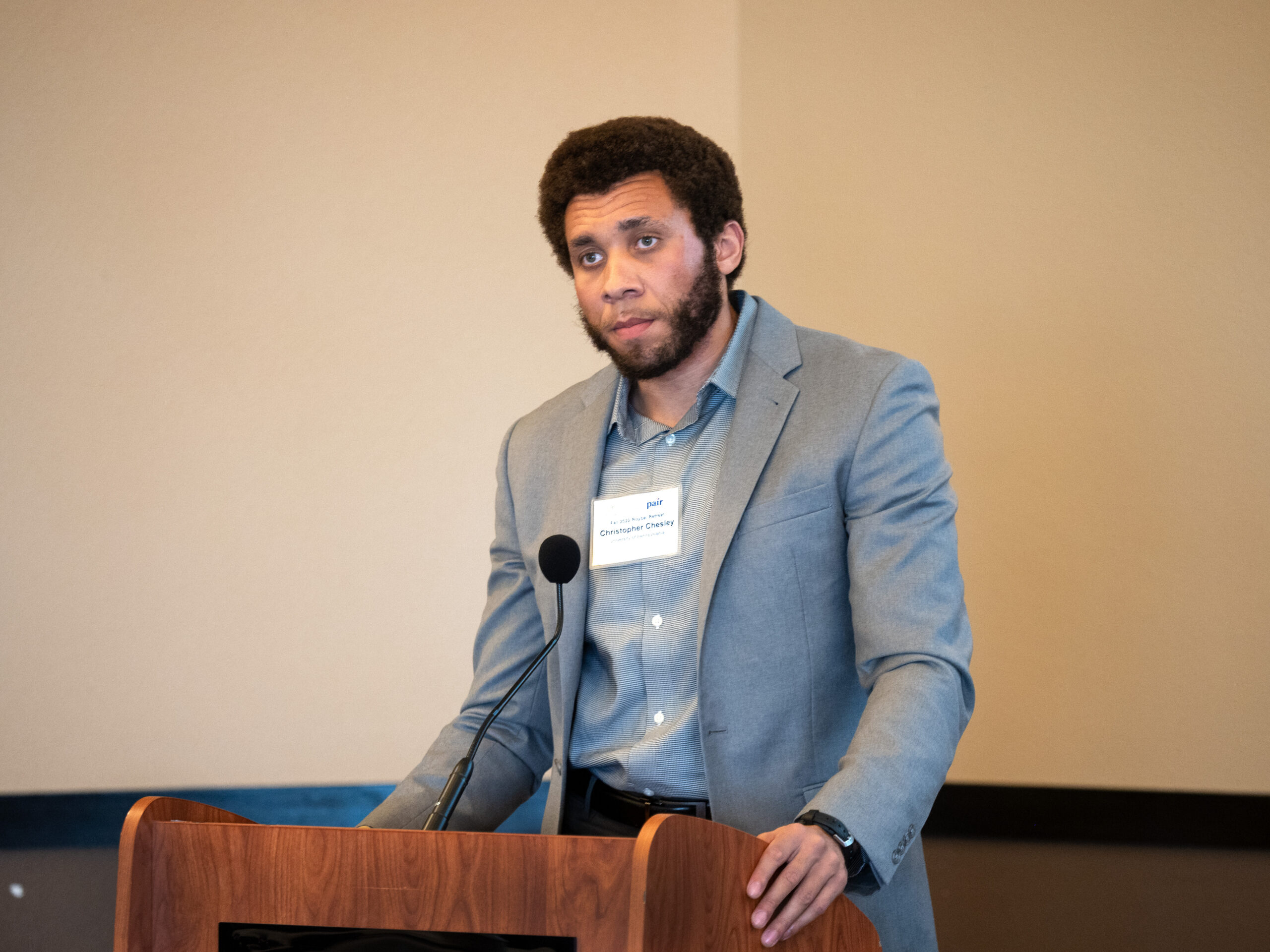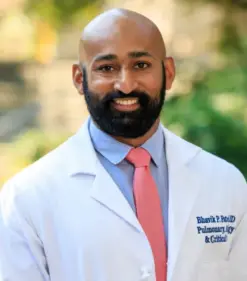Programs | Postdoctoral Training Grant in Critical Care Health Policy Research
Postdoctoral Training Grant in Critical Care Health Policy Research
About

Our NIH-funded training grant (T32HL098054) has supported postdoctoral training in critical care research at Penn since 2010. The program is designed for physician and nursing postdoctoral fellows with clinical experience in adult and pediatric critical care. The overall goal of this Critical Care Health Policy Research (CCHPR) program is to train and develop independent investigators who conduct impactful, policy-relevant health services research that improves the quality of critical care medicine, including its safety, efficiency, equity, and costs.
Contact
Admissions
Dr. Meeta Kerlin, Director of Trainee Recruitment and Selection
Training Program
This postdoctoral program integrates clinical experience, health services research training, policy analysis, and leadership and career development opportunities for physicians and nurses trained in all disciplines of adult or pediatric critical care medicine. CCHPR trainees receive an intensive, structured program of mentoring, didactic research training, and experiential research over two years. Expert faculty across the Penn schools of Medicine, Nursing, and Business (Wharton) and the Children’s Hospital of Philadelphia (CHOP) are available as mentors. The program provides advanced training in epidemiology, biostatistics, qualitative methods, health economics, and the other academic disciplines relevant to critical care health policy research. Program participants will gain the skills necessary to combine their clinical expertise with their research training to ask and answer important questions about how critical care is and ought to be organized, financed, managed, and delivered.
Critical Care Health Policy Research Program Plan
+ Hands-on mentored research throughout the duration of the training program that includes the development and completion of at least one and usually multiple research projects in critical care medicine under close supervision of a multidisciplinary mentoring team.
+ Core didactic courses in health economics, health policy, methods of data collection, and statistics.
+ Elective courses in advanced biostatistics, health care economics, implementation science, comparative effectiveness research, qualitative methods, quality measurement, and more.
+ Participation in multidisciplinary research and professional development seminars.
+ Instruction in the responsible conduct of research and regulatory affairs.
Financial Support
+ Stipend and tuition support for the MSHP program
+ Modest research expenses
+ Administrative support for grants
+ Up to $1,400 for travel to scientific conferences
+ Health insurance

Trainee Goals & Mentors
Each trainee pursues the T32 training program for two years, with three new students admitted annually. The grant supports the stipends of 6 postdoctoral students per year and their tuition costs to pursue a Master of Science in Health Policy Research (MSHP). If individual students have specific training goals better served by one of Penn’s other master’s programs (e.g., Master of Science in Clinical Epidemiology and the MBA concentration in health care management at Wharton), the leadership team will consider those possibilities on a case-by-case basis. Learn more about the Master of Science in Health Policy Research (MSHP) program.
The training program includes over 45 faculty mentors from across the Schools of Medicine and Nursing and the Children’s Hospital of Philadelphia. Mentors span the Division of Pulmonary, Allergy, and Critical Care and the Departments of Anesthesiology and Critical Care; Emergency Medicine; General Internal Medicine; Pediatrics; Surgery; Medical Ethics and Health Policy; Biostatistics, Epidemiology, and Informatics; and Biobehavioral and Health Sciences (Nursing).

How to Apply
Eligibility
Our program is designed for postdoctoral fellows with clinical experience in adult and pediatric critical care. Our definition of critical care encompasses care for adults, children, and neonates with severe medical, post-surgical, or trauma-related problems who are treated in intensive care units (ICUs), cardiac care units, or emergency departments, but also to encompass patients at risk for ICU admission and patients who survive ICU stays.
Our CCHPR trainees have traditionally come from—but are not limited to—five post-doctoral fellowship training programs (Pulmonary Critical Care, Anesthesia Critical Care, Pediatric Critical Care, Pediatric Emergency Medicine, and Surgical Critical Care) and two postdoctoral residency programs (Emergency Medicine and General Surgery). Trainees may join the program during the two years of their residencies and fellowships that are protected for research (in most of these programs) at Penn and most major academic centers or following completion of these training programs but before joining the faculty. Beginning in 2024 we also encourage nurse scientists to apply.
All CCHPR trainees must be U.S. citizens or green card holders.
Admissions Process
The CCHPR Steering Committee manages the three-step admissions process:
Step 1
CV & Statement of Interest
Interested individuals should submit a CV and brief statement of interest to Meeta Kerlin, Director of Trainee Recruitment and Selection, at MKerlin@pennmedicine.upenn.edu.
Step 2
Interview with Steering Committee
Potential candidates interview with at least three of the six members of the Steering Committee in November/December. We gauge the candidate’s interest in an academic research career and ensure suitable mentorship in the candidate’s area of interest.
Step 3
Apply to the MSHP* Degree Program
Third, all suitable applicants apply for admission into the MSHP (*or rarely, MSCE) degree program. Applicants must submit a formal application, including a personal statement identifying their career goals, provide 3 letters of reference, and submit all academic transcripts from college and beyond. Applications are reviewed by the MSHP (or MSCE) Admissions Committee; the most qualified candidates are selected for interviews. Particular priority is given to the referees’ evaluation of each applicant’s promise to develop into an independent investigator.

Steering Committee
Program Director
John M. Eisenberg Professor in Medicine, Epidemiology, and Medical Ethics and Health Policy;
Director of the PAIR Center
Director of Mentor-Mentee Relations
John Morgan Professor of Medicine, Health Care Management, and Medical Ethics and Health Policy, and Senior Vice Dean for Strategic Initiatives
Director of External Outreach and Quality Training
Associate Professor of Emergency Medicine and Epidemiology and Director of the Penn Medicine Nudge Unit
Director of Trainee Recruitment and Selection
Associate Professor of Medicine and Vice Chair for Faculty Affairs of the Department of Medicine
Director of Recruitment and Development at CHOP
Kristine Sandberg Knisely Professor of Pediatrics and Associate Chair of the Division of Neonatology at CHOP




